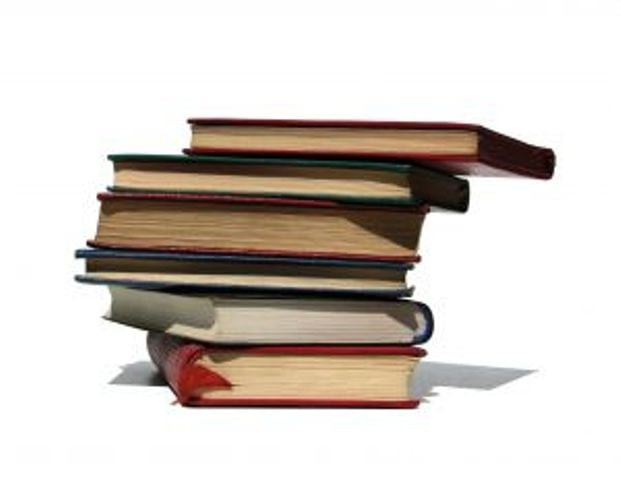Chinese 'blind spot' for Western readers
Hong-Kong based Harvey Thomlinson founded Make-Do Publishing to produce quality Chinese, Asian literature in English.

There are the occasional books by Chinese authors that hit the international bestseller lists such as the blockbuster "Wild Swans" by Jung Chang, which has sold millions worldwide, and Adeline Yen Mah's "Falling Leaves".
But both of those authors are based in the West -- highlighting the paucity of material from China itself that reaches international markets.
Hong-Kong based Harvey Thomlinson founded Make-Do Publishing in 2009 to produce quality Chinese and Asian literature in English translation, capitalising on Hong Kong's unique position as a multicultural Chinese territory where freedom of speech laws remain intact.
"You can't underestimate censorship and the impact it has had on the quality of China's literary output," he said.
"The effect is like a dust sheet being thrown over a piano -- not only state censorship but also the self-censorship that goes with it."
Chinese fiction also tends to follow a template, according to the British publisher, ignoring the realities of industrialised, modern China, which continues to grow and change at a bewildering pace.
Western imprints pick out only a few genres for translation such as the Cultural Revolution memoir, along with novels by Westernised Chinese authors -- who often write originally in English.
And economic factors also play a major part in the drive to boost sales.
"Most books have to turn a profit for publishers and this can make editors and their boards quite conservative about their choices," said London-based author and translator Julia Lovell.
"It means they need to look for commercial themes, or books that seem to recapitulate styles and ideas that have worked in the past. Anything new or very literary will, of course, seem a risk."
As well as being an easier sell in the West, such books are also less of a risk for the writers, who are reluctant to tackle current social issues for fear of official repercussions.
In China's big state-run publishing houses "editing is not a profession any more", said Martin Merz, a Hong Kong-based translator. "Now it's more about avoiding political errors."
Make-Do focuses instead on independent authors such as Murong Xuecun and Chen Xiwo, who tend to offer something different from the many government-backed writers in China who receive stipends and other incentives to encourage them to stay on-side.
Murong's debut book, "Leave Me Alone: A Novel of Chengdu" was first published online in 2002, where it attracted several million readers before being released in print.
The novel tells the darkly comic story of three young men's attempts to make their way in newly capitalist China, their lives beset by dead-end jobs and gambling debts.
Chen, who was active in the student democracy movements of the 1980s, was also first recognised as an online writer. His controversial novella "I Love My Mum", which has incest as a theme and is banned in China, will be published in the United States in September.
Internet fiction and short stories are two increasingly important platforms for emerging young writers in China.
Lovell, who teaches modern Chinese history and literature at Birkbeck College, University of London, said Internet fiction was "enormously popular".
The most prolific Internet writers produce up to 10,000 words a day and Lovell said "fast, cheap, popular genres dominate" online.
The trend has broadened the range of Chinese writing, making it easier for already established authors such as Mo Yan and Yu Hua to deal with issues like sex and drugs more directly than they had done before.
The Internet fiction phenomenon in the country was the result of "a perfect storm of historical and cultural factors coming together at the end of the 1990s", said Thomlinson.
But even with these factors, it is difficult to make an impression outside China.
Just two to three percent of books published annually in Britain and the United States are translations -- although their share is slightly higher in non-Anglophone countries such as France and Germany.
To grasp the new spirit of China, international readers should turn to short stories, Lovell said.
"Most people have by now woken up to the idea that the politics and economy of China are worth understanding. But familiarity with Chinese culture (especially literature) still lags behind economic and political interest in the country."
However, China's many literary magazines mostly carry short stories and some, such as the recently launched Pathlight and Chutzpah, are published at least partly in English translation.
They showcase young, contemporary Chinese writers who, Lovell said, have "strongly individualistic, personal" approaches and "a determination to illuminate the intense strangeness of the capitalist society that the Chinese Communist party is now building".



















COMMENTS
Comments are moderated and generally will be posted if they are on-topic and not abusive.
For more information, please see our Comments FAQ